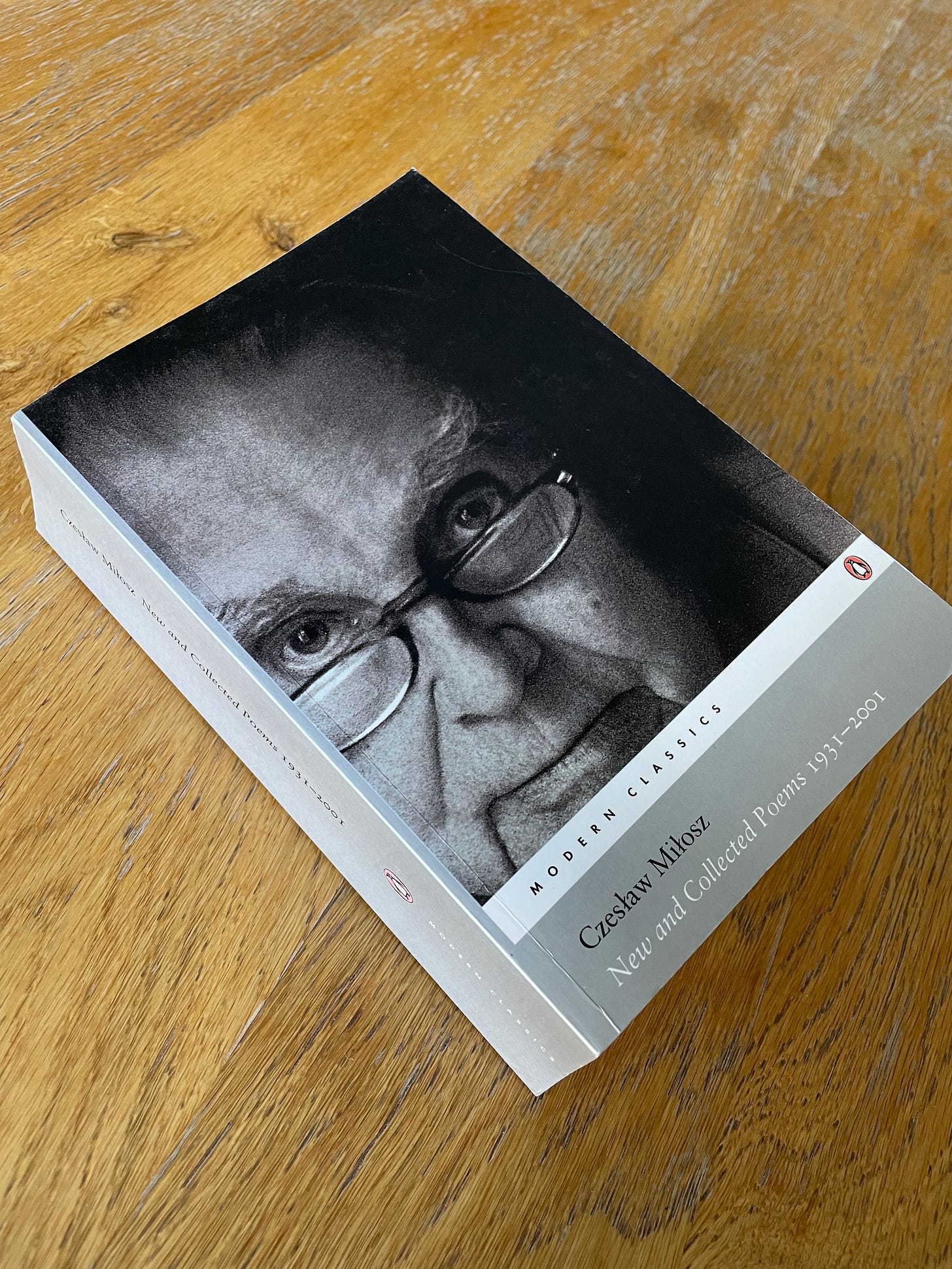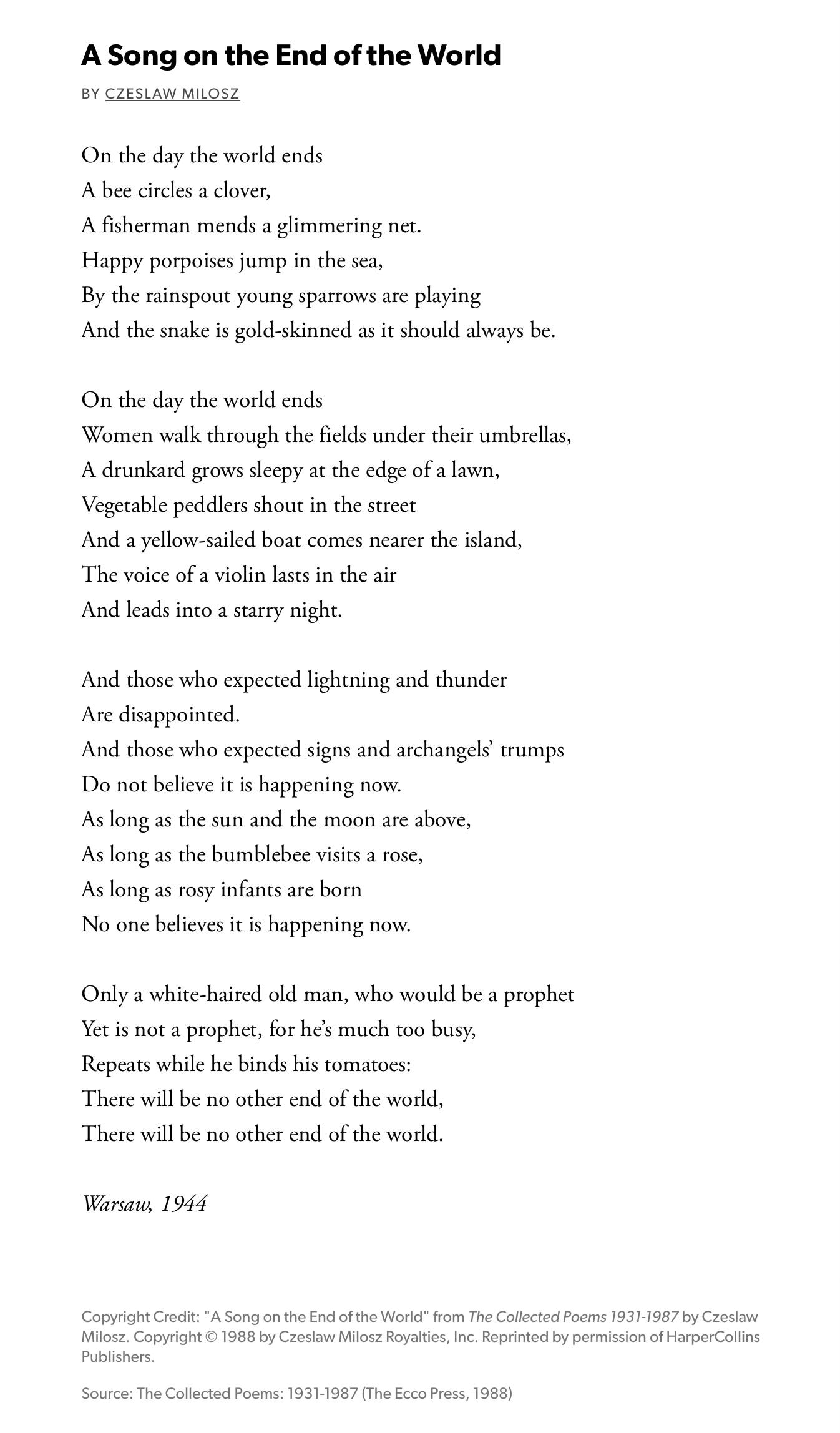The second poet on my shelves happens to be one of my all-time favourites, Czeslaw Milosz.
Milosz was born in Lithuania in 19111 and is generally regarded as one of the giants of European literature. He grew up in Vilnius and spent most of the Second World War in Warsaw, taking an active part in the struggle against the Nazis. Milosz eventually defected from communist Poland in 1951 and lived in France and the USA. The Polish government banned publication of Milosz’s works after his defection, but in 1980 he was awarded the Nobel Prize for Literature and the government issued an authorised edition of his poems, which sold 200,000 copies. Milosz published nearly 20 books of poetry in his lifetime, as well as novels and collections of essays. He died in 2004.
His New and Collected Poems, which sits next to Tennyson’s Works, is huge. I haven’t read all of it and there are poems which don’t particularly speak to me (mainly those with a religious theme) but there are old friends I return to again and again.
The poem I’ve chosen to share, ‘A Song on the End of the World’, feels apt at a time of so much anxiety about our collective future, especially in the week of the 80th anniversary of the liberation of Auschwitz. It was written in Warsaw in 1944, when the Nazis crushed a major effort by the Polish resistance, later known as the Warsaw Uprising, to overthrow the occupation. Here is the poem (from the Poetry Foundation website):
Those idyllic, idealised scenes are so alluring. This is what our human life on this earth can be like, the poem seems to say, if we want it to be. And all the while the sinister and terrible ending of the possibilities of civilisation are hovering just out of sight, and it’s only the old man, with his years of experience, who knows what’s happening. (The theme of the disturbing ordinariness of the backdrop to catastrophic events feels reminiscent of W H Auden’s famous poem ‘Musee des Beaux Arts’. Auden’s poem was written in 1938 and I wonder if Milosz had come across it.)
When I read Milosz’s poetry I feel I’m in the company of someone who has examined the parts of the world he has seen, and our human experience, and himself, with a kind of exceptional, unblinking clarity. His perspective and experiences are different to mine and in some ways that creates a mysteriousness around meaning, but I find this doesn’t become a barrier. I love the extreme simplicity of some of the poems, which feels daring somehow, and their depth. Some of my favourites are from his collection Rescue and include ‘Faith’ and ‘Love’, and another is ‘Late Ripeness’, which you can read on the Poetry Foundation’s site.
I’ll leave you with these lines from ‘Faith’, which I’ve found myself repeating like a mantra in difficult moments.
See the long shadow that is cast by the tree?
We and the flowers throw shadows on the earth.
What has no shadow has no strength to live. Coincidentally just a year before my grandmother, who was born about 200km away from Milosz’s home town in 1912.





Like Wendy and Sophie, I hadn’t heard of Milosz before, thank you for the introduction! A Song on the End of the World is both comforting and terrifying somehow. And yes, the simplicity and clarity of the poem really packs a punch.
Thank you for sharing this. I loved it. I hadn’t heard of Milosz either, I confess, so your post was an education.